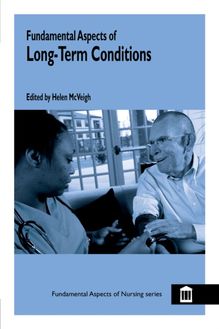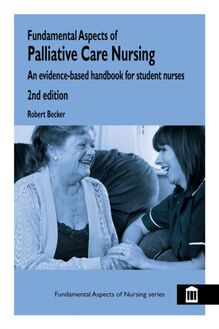-
 Univers
Univers
-
 Ebooks
Ebooks
-
 Livres audio
Livres audio
-
 Presse
Presse
-
 Podcasts
Podcasts
-
 BD
BD
-
 Documents
Documents
-
- Cours
- Révisions
- Ressources pédagogiques
- Sciences de l’éducation
- Manuels scolaires
- Langues
- Travaux de classe
- Annales de BEP
- Etudes supérieures
- Maternelle et primaire
- Fiches de lecture
- Orientation scolaire
- Méthodologie
- Corrigés de devoir
- Annales d’examens et concours
- Annales du bac
- Annales du brevet
- Rapports de stage
La lecture à portée de main
Vous pourrez modifier la taille du texte de cet ouvrage
Découvre YouScribe en t'inscrivant gratuitement
Je m'inscrisDécouvre YouScribe en t'inscrivant gratuitement
Je m'inscrisEn savoir plus
Vous pourrez modifier la taille du texte de cet ouvrage
En savoir plus

Description
Sujets
Informations
| Publié par | Andrews UK |
| Date de parution | 23 mai 2016 |
| Nombre de lectures | 0 |
| EAN13 | 9781856424783 |
| Langue | English |
Informations légales : prix de location à la page 0,0950€. Cette information est donnée uniquement à titre indicatif conformément à la législation en vigueur.
Extrait
Title page
Fundamental Aspects of Long-Term Conditions
A Guide for Students of Nursing and Health
Edited by Helen McVeigh
Publisher information
2016 digital version converted and published by
Andrews UK Limited
www.andrewsuk.com
Quay Books Division, MA Healthcare Ltd, St Jude’s Church, Dulwich Road, London, SE24 0PB
© MA Healthcare Limited 2009, 2016
All rights reserved. No part of this publication may be reproduced, stored in a retrieval system or transmitted in any form or by any means, electronic, mechanical, photocopying, recording or otherwise, without prior permission from the publishers
Note
Health care practice and knowledge are constantly changing and developing as new research and treatments, changes in procedures, drugs and equipment become available.
The author and publishers have, as far as is possible, taken care to confirm that the information complies with the latest standards of practice and legislation.
Contributors
Jasmin Amoroso MA, B. Ed (Hons) Practice Educator, Specialist Practitioner DN, RN
Senior Lecturer in Nursing, De Montfort University, Leicester
Gill Ayling
Full time carer
Jacqui Day MA, PG Dip Healthcare Education, RM, BA (Hons)
Senior Lecturer in Mental Health Nursing, De Montfort University, Leicester. Jacqui is the academic lead for mental health within the university
Ron Eldridge MA, RGN, RMN, NDN Cert
Independent Nurse Prescriber and Community Matron, Leicester City Community Health Service
Karen Ford MSc, BSc(Hons), RHV, RGN
Senior Lecturer in Primary Care and Non-Medical Prescribing Lead, De Montfort University, Leicester
Chris Knifton SBStJ, MSc, MA, LLB(Hons), BSc(Hons), FAETC, RNLD, Dip SW, Dip AROM, Dip Counselling and Psychotherapy, Dementia Care Mapper (Adv)
Senior Lecturer in Nursing, De Montfort University, Leicester
Deborah Lewis MSc, RGN, DN Cert
Senior Lecturer in Cancer and Palliative Care, Birmingham City University Faculty of Health, Edgbaston, Birmingham
Jean Martey RN, Independent Prescriber, City Guilds 7303
Parkinson’s Disease Nurse Specialist; Secretary to the National Parkinson’s Disease Nurse Association
Helen McVeigh MA Learning and Teaching, BSc (Hons) Community Health Nursing, RNT, RGN
Senior Lecturer in Primary Care, De Montfort University, Leicester
Teresa Pratt RNMH, Dip He Mental Health, BSc Specialist Nursing Practice (Mental Health), C & G Further and Adult Education Teachers’ Certificate
Community Mental Health Nurse, Leicestershire Partnership Trust
Paul Rigby MA. BA (Hons). RMN. Dip Ad Ed. Dip Nurs. Dip Health Care Practice (THORN). Senior Lecturer
Senior Lecturer in Mental Health Nursing, De Montfort University, Leicester; Community Mental Health Team, Leicestershire Partnership NHS Trust
Tony Robinson
Person with Parkinson’s
Ruth Rojahn MA Learning and Teaching, BA Nursing Practice, PG Dip (Educ), RGN, DN Cert, CPT (DN)
Senior Lecturer in Primary Care, De Montfort University, Leicester
Janice Strefford BSc (Hons) Community Health Nursing, RN
Practice Nurse
Dr Ira Unell PhD
Senior Lecturer in Substance Misuse and Course Director for the MSc in Drug and Alcohol Treatment at Leicester University Medical School
Cheryl Utecht MA, BA(Hons), RGN, ONC, DN(Cert)
Principal Lecturer at De Montfort University, Leicester
Acknowledgements
I would like to express my appreciation to all those who supported me in this venture. To colleagues, practitioners and individuals who freely gave their time and agreed to contribute.
To John for his encouragement and support.
To Ruth for listening and proof reading.
To Gary for his patience and support.
Helen McVeigh
December 2009
Foreword
Long-term conditions is an extremely important addition to the Fundamental Aspects series. The implication of increasing life expectancy is that many people now live with what have been termed ‘long-term conditions’. Most people over the age of 50 years have some form of long-term health problem. For most, this is a relatively minor and easily treatable condition, such as raised blood pressure, some joint pain, eyesight deterioration, or mild diabetes, while for others the condition may be more serious.
Possibly one of the most distinguishing features of any long-term condition is the effect it has on the lifestyle not only of the person with the condition, but their family, friends and colleagues. This is brought out with considerable force in the chapters written by ‘patients’ and ‘carers’. As nurses, so often we only see the immediate medical problem the patient is presenting with, and while that is important in terms of assessment and management, it must not be seen in isolation from the holistic picture, which so often, only the patient is aware of - hence the concept of the ‘expert patient’.
In editing this book, Helen McVeigh has brought together a number of clinical specialists, university lecturers, patients with long-term conditions and carers. As you read through individual chapters and then the complete book, you will begin to appreciate not only the medical implications of long-term conditions, but in addition you will gain an insight to what it feels like to be labelled in this way. If you can have some empathy into that experience, then you will be a far more understanding nurse.
John Fowler
Phd MA BA DipN Cert.Ed. RGN RMN RCNT RNT
Principal Lecturer in Nursing
De Montfort University
Series Editor
Fundamental Aspects of Nursing
Introduction
Providing support and care for individuals with a long-term condition is an essential feature of modern health care. Over 15 million people in England currently have a long-term condition, and it is predicted that these numbers will continue to rise (Department of Health [DH], 2008). The impact of long-term conditions will affect every one of us in some way. For many of us this may be first hand as a sufferer, for others it will be in providing care or support to a partner, family member or friend.
The DH defines long-term conditions as ‘those that cannot at present be cured but can be controlled by medication or other therapies’ (DH, 2007). Living with a chronic illness offers no rosy end-point; unlike acute illness, where full recovery is expected, there is no return to normal health. The length, progress and severity of the illness will mean that the individual has to come to terms with living with their condition. For the individual this will often necessitate lifestyle changes and modifying expectations for the future.
As nurses, our understanding of how a long-term condition influences an individual is often guided by our medical and physical knowledge of disease processes. We need to remember that living with a chronic illness will impact on all aspects of life. There will be significant psychological, social and emotional costs of living with a long-term condition. A holistic nursing perspective acknowledges that practice should be underpinned with a comprehensive understanding of all factors that impact on the quality of life for an individual; physiological, psychological, social, spiritual and environmental. We also need to understand and acknowledge the experiential experiences of the individuals we care for. In addition, nursing practice needs to evolve in response to the changing expectations of individuals, society and healthcare provision. Our success in providing effective and long-lasting quality interventions may well be reliant on successfully balancing our understanding of all these aspects of care.
This book aims to raise your awareness of long-term conditions, their management and the implications of living with chronic illness. The book takes a patient-centred, holistic approach, which aims to help you understand that an individual’s response to having a long-term condition is both complex and unique to them. The focus throughout explores long-term conditions in relation to the adult patient. Although some long-term conditions may begin in childhood, the concept of disease management in childhood and the implications this raises is considered to be a separate topic.
Chapter 1 introduces the subject and places long-term conditions in context, and looks at the impact current policy has on healthcare provision. It explores the notion of chronic illness and identifies a framework for management which introduces the concepts of self-care and the expert patient. The themes raised in this chapter are echoed in the approach and structure of subsequent chapters.
The following chapters focus on specific conditions taking a proactive approach that considers management, the role of relevant services, coping strategies, quality of life and self-management. While chapters have focused on individual conditions, it is important to be aware that many individuals may have more than one condition, or indeed complex comorbidities. It is also important to recognize that many conditions will shorten life expectancy and Chapter 14 considers the topic of palliative care and end-of-life decisions. The issue of lifestyle choice and the influence this has on both the development of and progress of long-term conditions is of particular relevance. Chapters 12 and 13 explore the issues of obesity and alcohol use, while smoking is discussed within Chapter 5 in relation to chronic obstructive pulmonary disease (COPD).
Management is not just the remit of health care, as living with a long-term condition affects all aspects of a persons’ life; home, work, relationships, environment, spirituality, and psychological wellbeing. The ‘real life’ impact of living with a long-term condition is c
-
 Univers
Univers
-
 Ebooks
Ebooks
-
 Livres audio
Livres audio
-
 Presse
Presse
-
 Podcasts
Podcasts
-
 BD
BD
-
 Documents
Documents
-
Jeunesse
-
Littérature
-
Ressources professionnelles
-
Santé et bien-être
-
Savoirs
-
Education
-
Loisirs et hobbies
-
Art, musique et cinéma
-
Actualité et débat de société
-
Jeunesse
-
Littérature
-
Ressources professionnelles
-
Santé et bien-être
-
Savoirs
-
Education
-
Loisirs et hobbies
-
Art, musique et cinéma
-
Actualité et débat de société
-
Actualités
-
Lifestyle
-
Presse jeunesse
-
Presse professionnelle
-
Pratique
-
Presse sportive
-
Presse internationale
-
Culture & Médias
-
Action et Aventures
-
Science-fiction et Fantasy
-
Société
-
Jeunesse
-
Littérature
-
Ressources professionnelles
-
Santé et bien-être
-
Savoirs
-
Education
-
Loisirs et hobbies
-
Art, musique et cinéma
-
Actualité et débat de société
- Cours
- Révisions
- Ressources pédagogiques
- Sciences de l’éducation
- Manuels scolaires
- Langues
- Travaux de classe
- Annales de BEP
- Etudes supérieures
- Maternelle et primaire
- Fiches de lecture
- Orientation scolaire
- Méthodologie
- Corrigés de devoir
- Annales d’examens et concours
- Annales du bac
- Annales du brevet
- Rapports de stage









